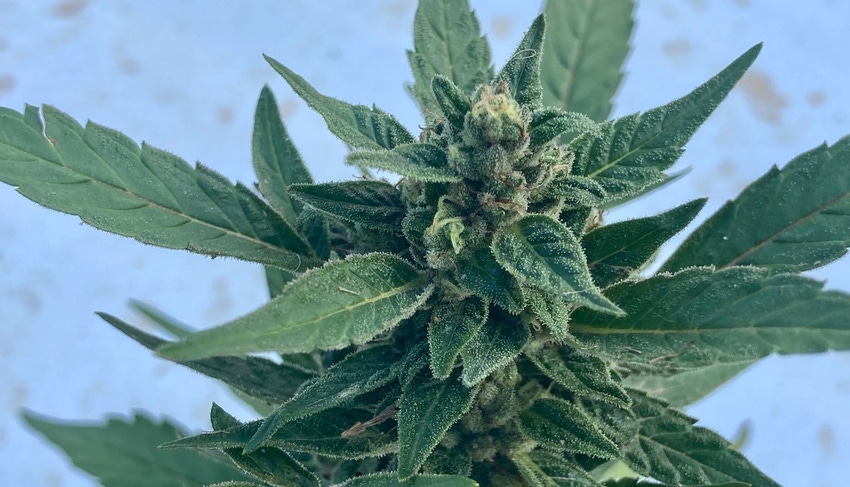
The plain metal exterior of Hemp2Lab is nearly identical to all the other plain metal buildings in its industrial complex outside of Memphis, Tennessee.
So, you’re a little surprised when upon entering you find yourself in a stylish lobby being greeted by the company’s Chief Operations Officer Tommy Childress wearing a white lab coat. The modest exterior disguises a more than $3 million state-of-the-art hemp oil extraction facility operated by chemical engineers and a PhD scientist (also in white lab coats). If you still consider hemp on the fringes, Hemp2Lab is trying to change your mind.
“There is very little regulation in hemp right now, but we believe it’s coming and are prepared for the most stringent regulation,” said Keith Allen, chief commercial officer of Hemp2Lab. “That’s why we built a Food Grade Quality facility with the highest levels of safety and manufacturing standards.”
Hemp2Lab’s president and CEO is Bill Margaritis, a former senior vice president with FedEx. It’s Chief Scientist Randy Powell is a biochemist and former senior executive with Eastman Chemical Corp. But the idea for a hemp operation really started with Childress, a former rice and soybean farmer from the Arkansas Delta.
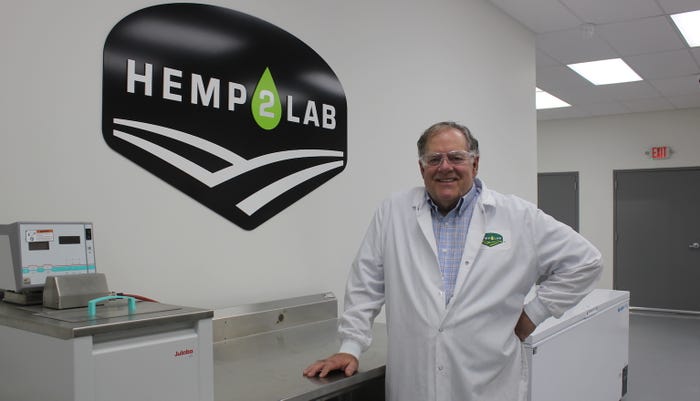
After attending a hemp meeting in 2016, Childress thought he could use his farming know-how to cash in on the huge profits predicted for hemp. Now living in Memphis, he returned home and pitched the idea to his friends and neighbors, Margaritis and Allen.
“Bill looked at it from a different angle and noticed the barriers for entry were low for growing hemp,” Childress said. “We saw a better opportunity to get into the extraction side because of the bottleneck with processing.”
The move was a wise one. Just this year, Hemp2Lab partnered with the motorcycle enthusiast brand Easyriders in a multi-million-dollar deal to provide CBD oil to be packaged in Easyriders products.
Saturated hemp markets
Hemp success stories are less common in this part of the world, where many hemp growers and processors are fairly new to the industry. As more production saturated the market, would be hemp barons saw their lucrative dreams go up in smoke.
“Right now, there’s probably at least 50-60% of the 2019 crop still stored either in the form of biomass or processed oil,” Childress said. “And they came right in here and planted nearly the same number of acres this year.”
At a now infamous auction held in Franklin, Tennessee, last November, growers expecting nearly $24 a pound for their hemp left early when the best bids topped out at $6 a pound.
“That was the precursor to the bottom falling out,” said Ron Jones, a breeder for Quinton Farms, a seed-to-sale hemp operation based in Munford, Tennessee. “When I first started it was a gold mine, but the value has plummeted.”
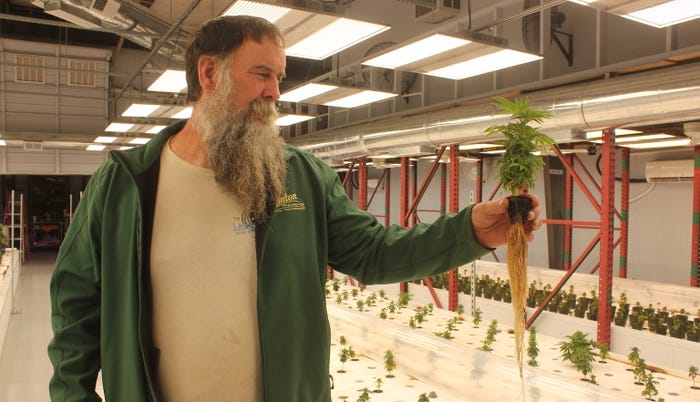
Jones, who says he’s been working in hemp in some form or fashion for more than 30 years, shared his perspective on the state of the industry under the LED lights of one of the farm’s indoor grow rooms.
“Since prices dropped, it’s been a chase on how to revalue and package it,” Jones said. “The interesting thing about this — and it’s kind of like everything else with farming — they’re getting the same thing on the retail end still.”
“It’s my belief that craft farms will be the ones that stand up, or large-scale operations that can produce a lot and extract a lot. The fully integrated operations will be the ones left standing.”
Quinton Farms is an example of a fully integrated operation. They grow from seed. Extract the CBD oil in their own lab. And package it in products like tinctures and gummy bears to be sold in owner Clayton Allen’s retail store under the brand Big Creek. Despite losing some value in seed sales there are plans to grow — even developing an educational facility on their farm to teach the basics of hemp and orchard production.
“Missing the gin”
But Jones admits the processing and marketing of products in a fledgling industry have been especially difficult challenges for some growers.
“In cotton you have a gin, and I’m not saying that’s necessarily the only way to go, but the hemp industry is missing the gin and growers are getting hung up on the marketing side and processing side.”
It’s easy to see parallels between Hemp2Lab and a cotton gin. They take harvested hemp and using a proprietary cryo-ethanol extraction method, produce a raw product that can be used as an ingredient by other businesses.
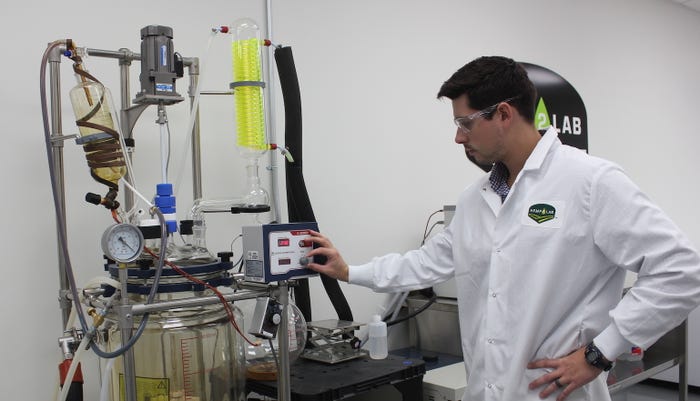
While there are lots of extractors available to growers, Allen insists there are none with the technical expertise of Hemp2Lab this side of the Mississippi River. “We provide full transparency on all of our packaging to consumers through QR code label technology. Through any digital device, a consumer can easily access certificates of analysis, farming techniques, ingredient profiles, and much more.”
Hemp2Lab has a strategic partnership with a family-owned sixth generation farm in Oregon for the hemp used in their brand partnership oils. They say hemp from that region is just a better consistency for the CBD market. They have also partnered with a world-class formulator and manufacturing laboratory in Colorado to create finished products with a patented liposomal delivery agent that accelerates the speed of CBD into the body, and also increases the uptake for better performance.
However, they will toll process hemp for Tennessee farmers at a rate of $12- $15 per pound. That price gets a grower all of his oil, a Certificate of Analysis and a Certificate of Conformance.
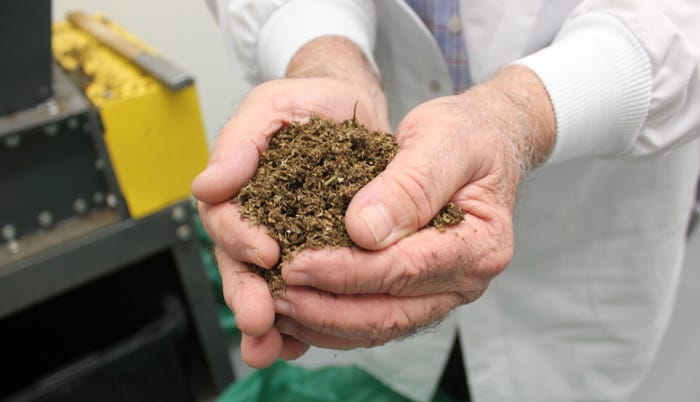
Future in fiber?
One thing it seems everyone in the industry agrees on is you need deep pockets and good connections to break into the CBD market.
“The farmers that were in it had pockets deep enough that it didn’t hurt them,” Jones said. “If you’re a farmer on the cusp, you have to be careful. You need to build good connections and you need a processor that’s well connected. Otherwise, where will you sell your oil?”
Hemp2Lab executives believe the “day of reckoning” is coming when the FDA issues its final rules about CBD products, and they predict that many companies competing across the supply chain will be purged because they simply will not be capable of meeting a higher threshold of regulatory compliance.
But there is also growing optimism in the Mid-South about the possibilities of hemp fiber production as it involves planting and harvesting techniques that are more familiar to the region.
“Fiber is going to be huge for the Southern market,” predicted Childress. “When the infrastructure and processing facilities are built, fiber will be massive. That’s where Southern farmers are going to clean up.”
About the Author(s)
You May Also Like






